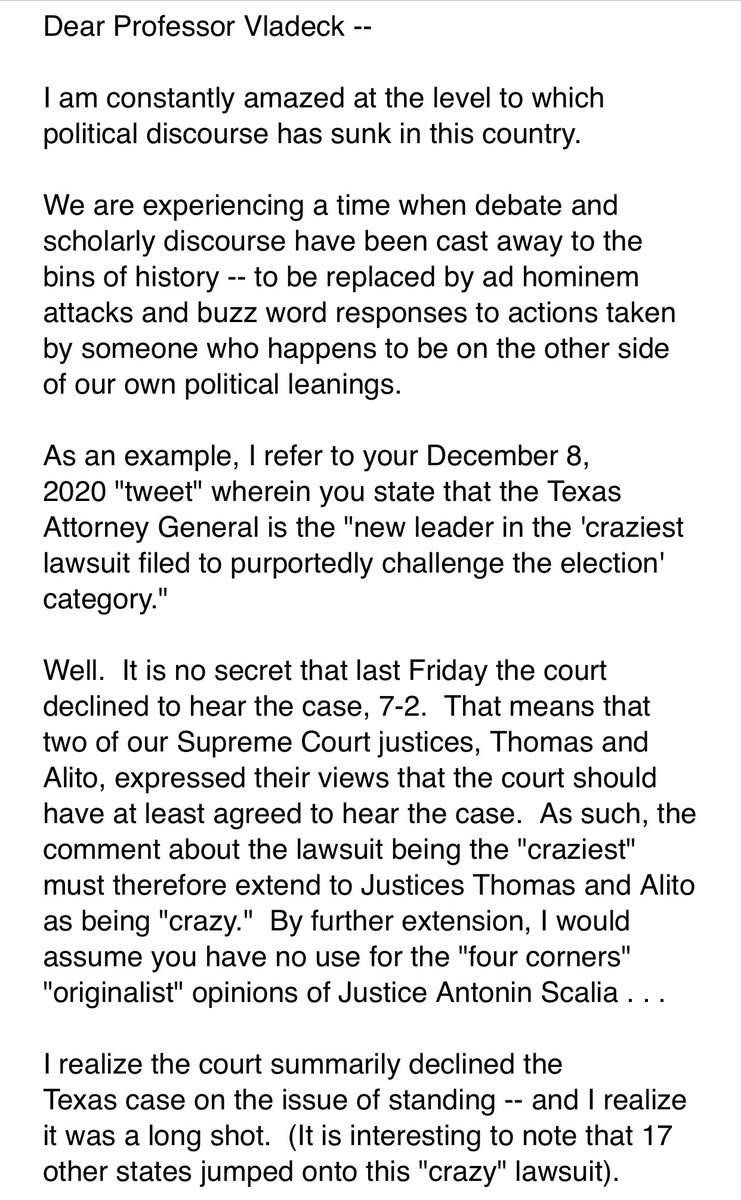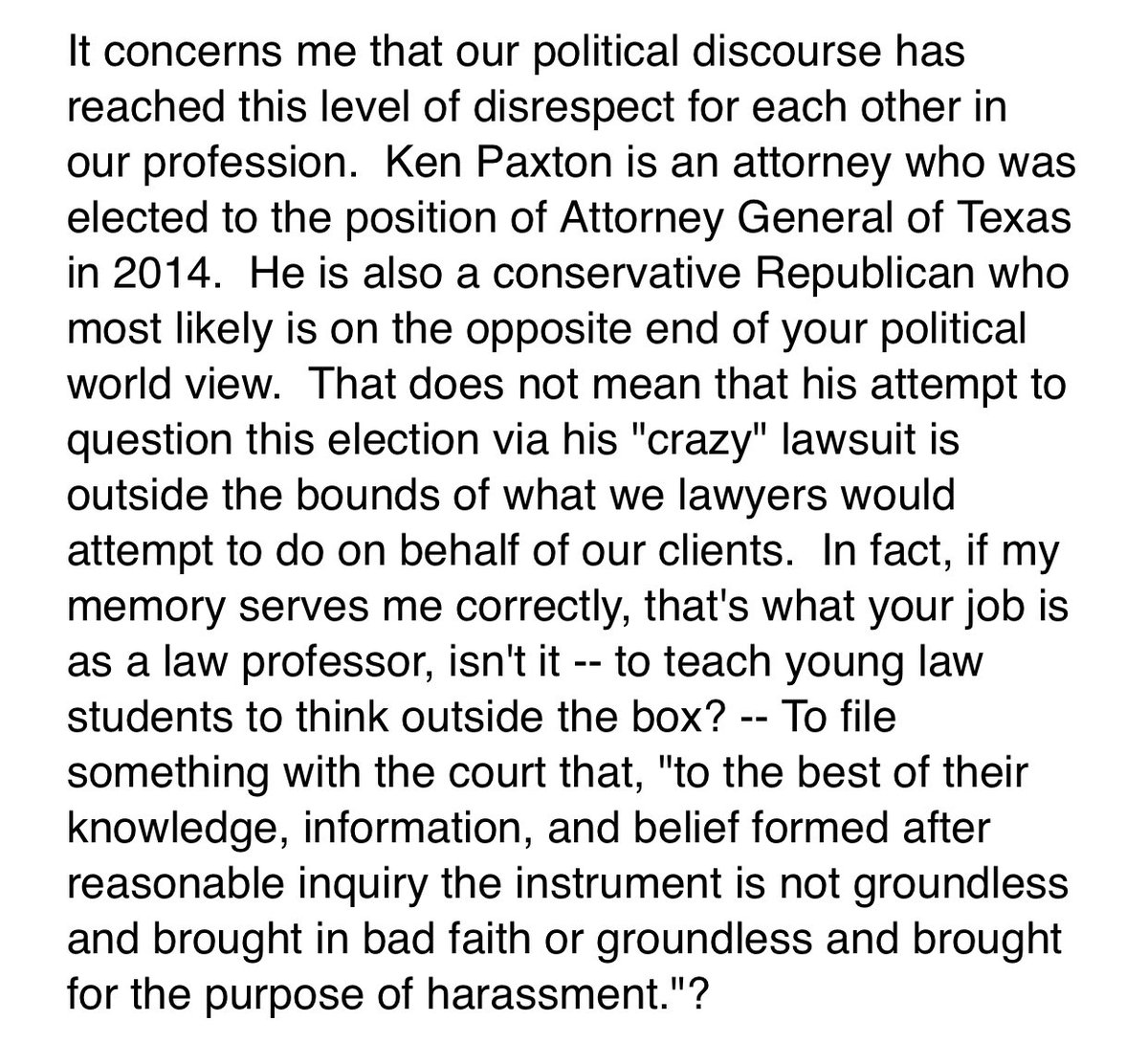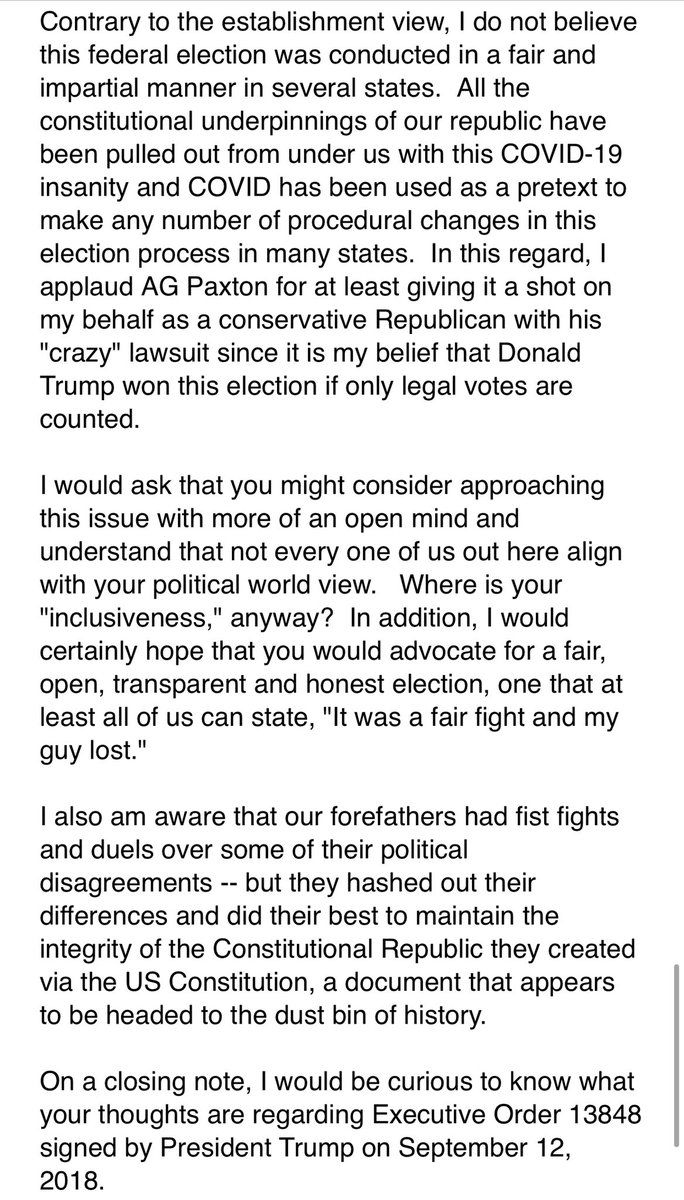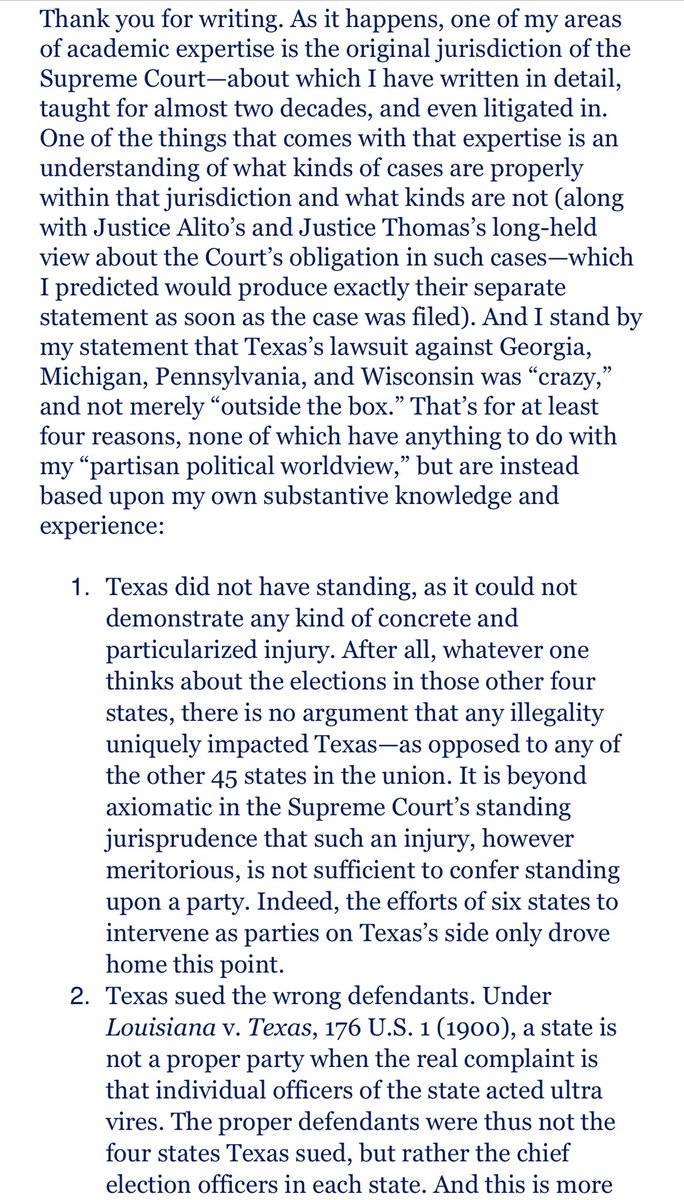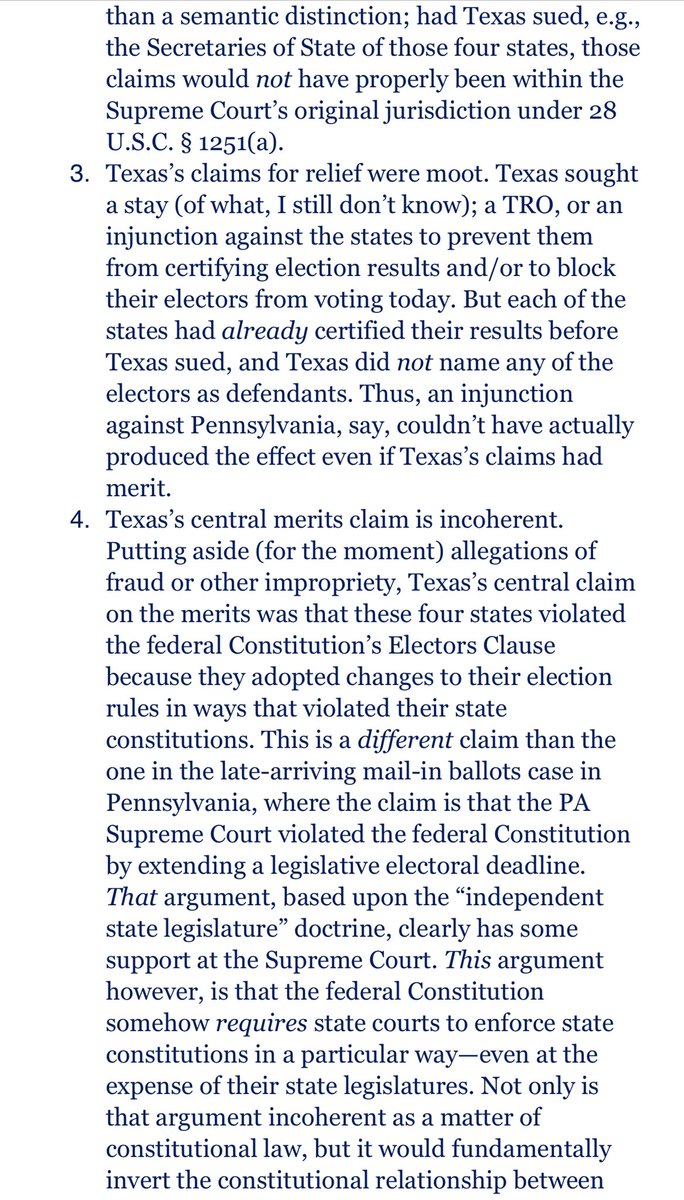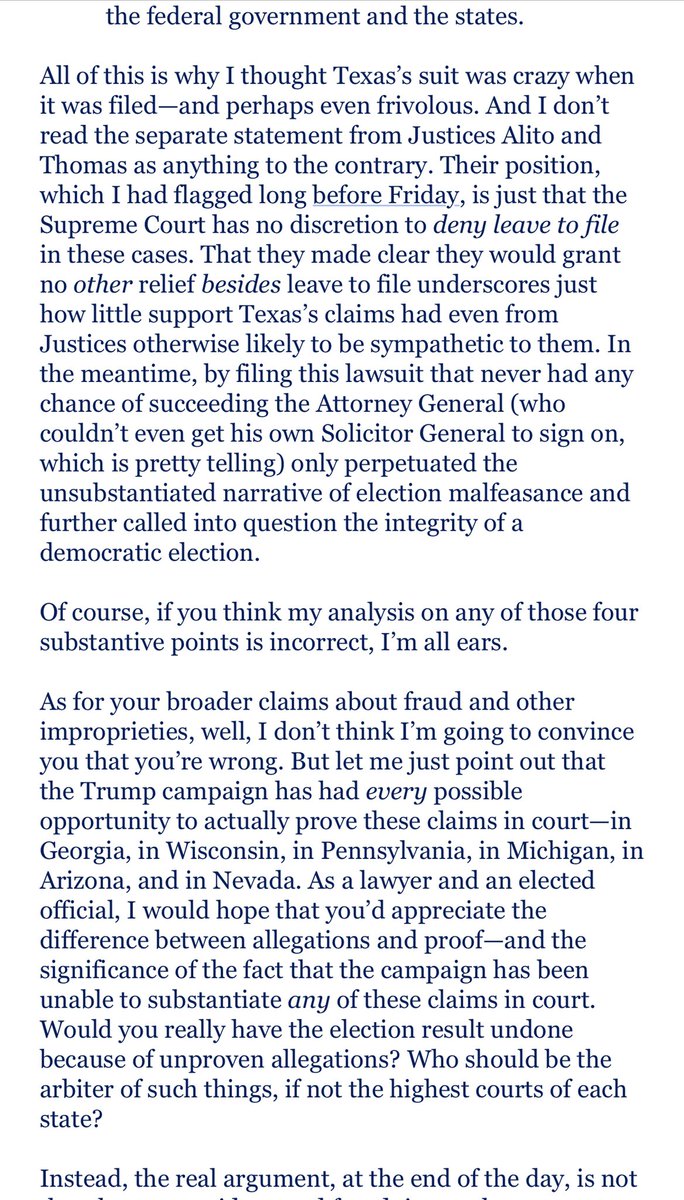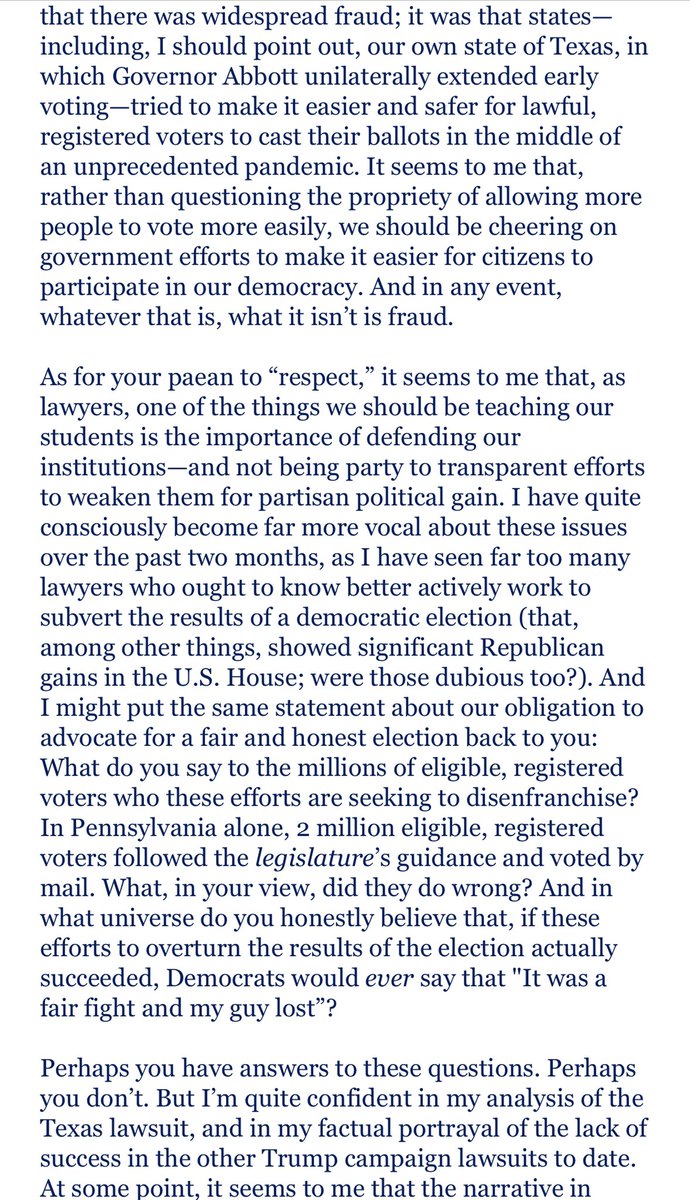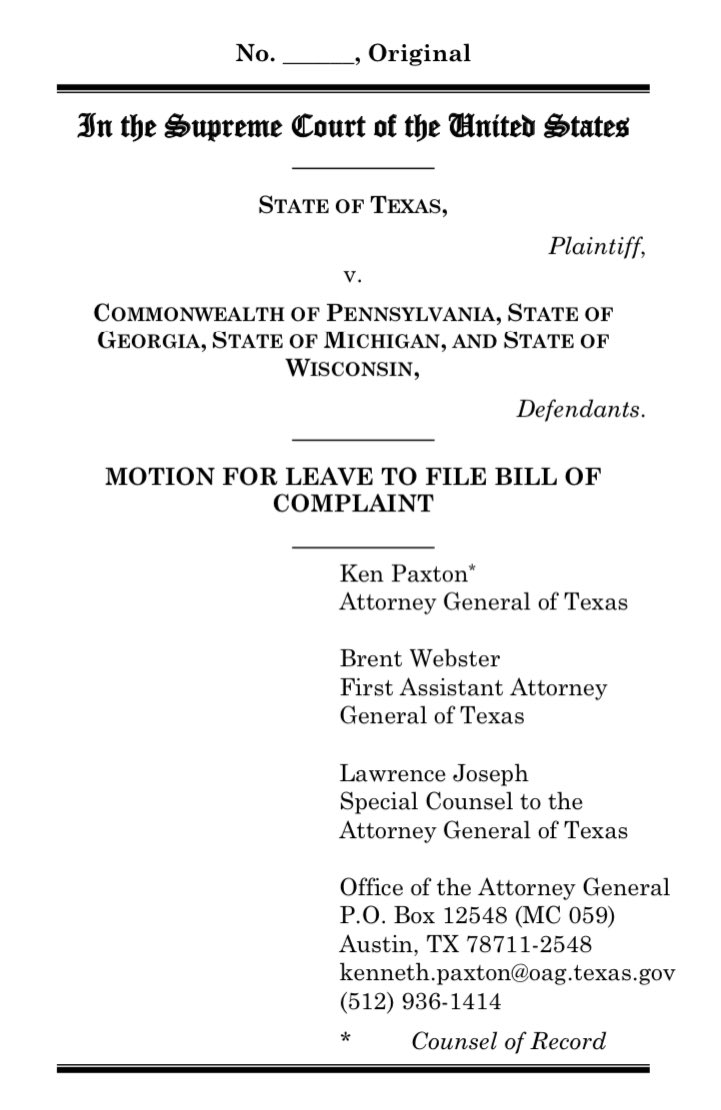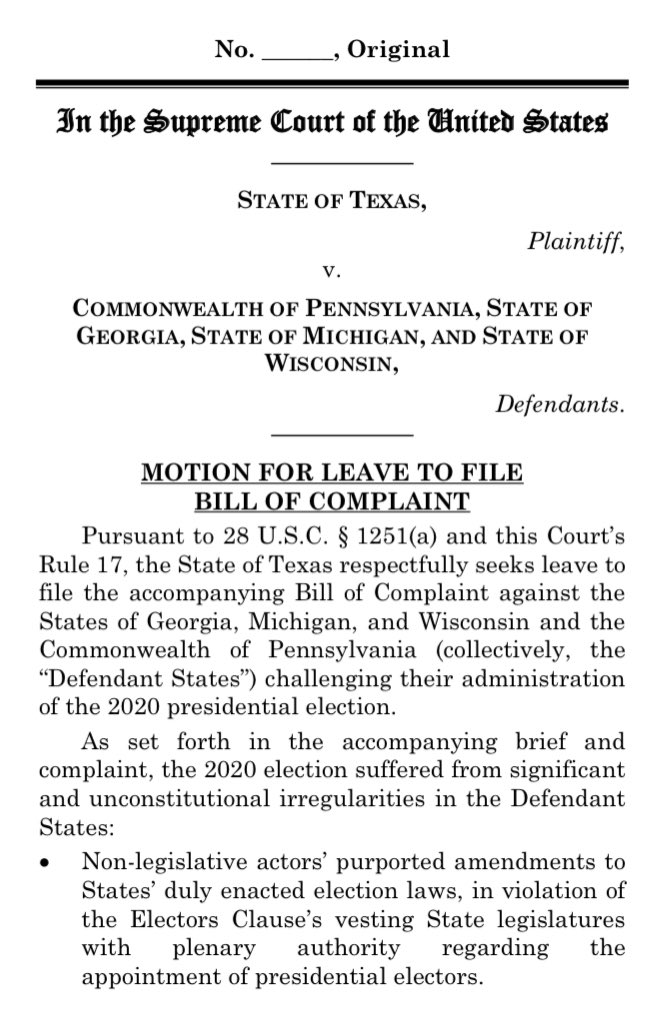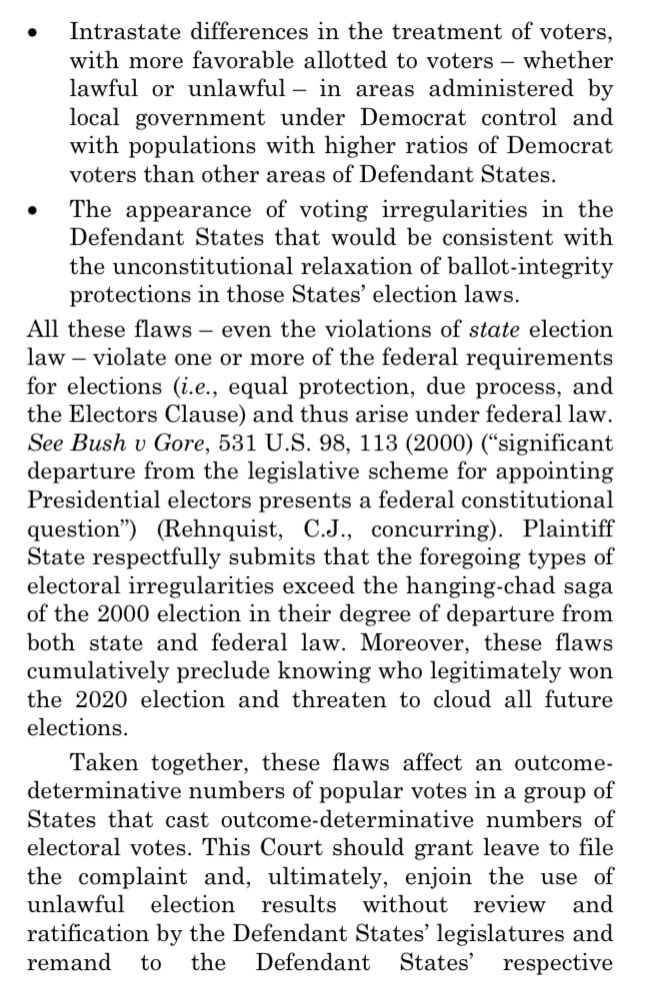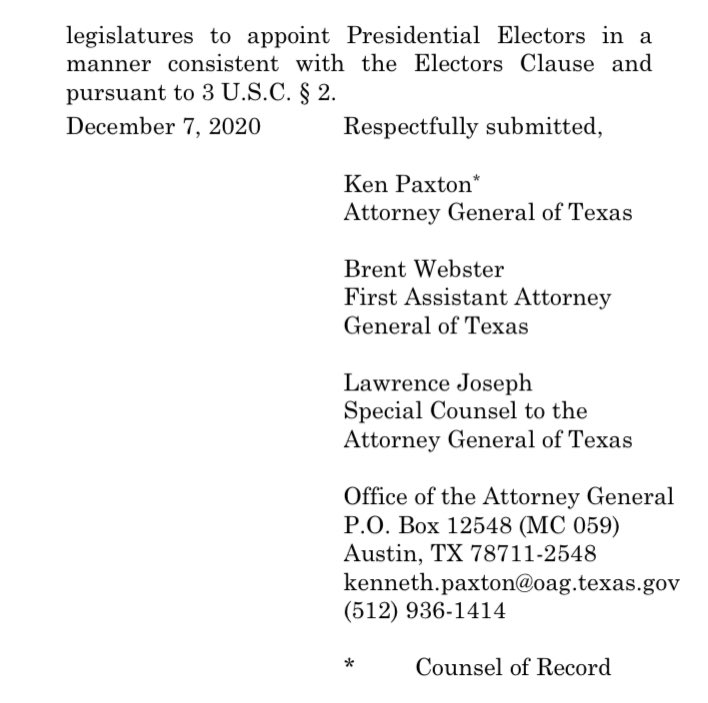
1. Everyone needs to take a deep breath.
Yes, the President and far too many Republicans are *continuing* to engage in dangerous, anti-democratic behavior—despite having utterly failed to substantiate *any* of the claimed electoral improprieties. But it's just not going to work.
Yes, the President and far too many Republicans are *continuing* to engage in dangerous, anti-democratic behavior—despite having utterly failed to substantiate *any* of the claimed electoral improprieties. But it's just not going to work.
2. First, even if a Senator like Hawley joins a House member's challenge to a particular state's electors, there's nowhere near a majority in *either* chamber (let alone both) to sustain the challenge. All that will happen from these challenges is the process getting slowed down.
3. Second, no, that doesn't mean that Republicans can "run out the clock." Even if McConnell somehow allowed this nonsense to drag on for *two weeks,* we'd end up with Acting President Pelosi at noon on 1/20, not President Trump. And the Twelfth Amendment isn't to the contrary.
4. Third, none of the (still pending) lawsuits are going to change any of this. #SCOTUS isn't about to throw out certified electors, and neither Judge Kernodle nor the Fifth Circuit is going to somehow enjoin VP Pence from performing his *ministerial* duty of counting the votes.
5. I know emotions are raw and tempers are short, but I think it's actually affirmatively *unhelpful* for folks to buy into any of the preposterous conspiracy theories being spread in right-wing social media. They've been wrong *from the start*; the actual *experts* haven't been.
6. None of this is to excuse any of the indefensible behavior from the President or far too many elected Republicans at both the state and federal levels.
But there's no necessary correlation between indefensible arguments and plausible ones. This is all just PR—and sore losing.
But there's no necessary correlation between indefensible arguments and plausible ones. This is all just PR—and sore losing.
• • •
Missing some Tweet in this thread? You can try to
force a refresh

